{english below} El oído atento escuchando las pruebas. El cerebro procesando ideas. El mapeado de micros y cables. Las manos ágiles sobre la mesa. Y las mismas manos firmes sobre la guitarra. Esto es un leve atisbo, un resumen sencillo, de como Kurt Ballou maneja más música de la que caben en 24 horas. Para ver la magia del hombre sobre el sillón de GodCity Studio solo hay que escuchar Converge y el material que ha editado y producido. Hemos tenido el honor (o la desfachatez) de alejarlo momentáneamente de su trabajo y hacerle esta entrevista. Pisen la distorsión y disfruten.
“DISTORT EVERYTHING”. Lo vemos sobre tu pantalla de trabajo, como un lema filosófico sobre la puerta de un templo….
Un amigo mío, Scott, fabricó esas pegatinas. Me dio una y yo la pegue en el ordenador porque eso es lo que se hace con las pegatinas.

Converge se monta a finales de 1990 cuando tenias unos 16 años. Suele pasar en los orígenes de bandas jóvenes que alguno aparte de colgarse el instrumento empiezan a tener cierto brillo en los ojos cuando comienzan a trastear con equipos, pequeñas mesas de grabación y a juguetear con la edición. Conociendo tu trayectoria la música esta fundida a tu piel y a tu sangre. ¿Cuando fue Kurt Ballou infectado por la música y cómo fue el desarrollo del contagio?
Siempre he sentido una fuerte atracción por la música a pesar de no haber crecido en un ambiente especialmente musical. Mi padre tocaba un poco la guitarra e incluso me ayudo a construir algunas con tablas, clavos y gomas elásticas cuando era pequeño, pero aun así no se escuchaba mucha música en casa. Consecuentemente comencé a descubrir la música a través de magazines y fanzines y escuchando la radio de la universidad. Tuve la típica banda de instituto, pero luego descubrí el hardcore y el punk a través del skateboarding. Cuando conocí a Jake (Bannon) y al resto de la formación original de Converge (que en aquel momento se llamaban Blinded Side) yo era un poco mayor que ellos, tenia coche, equipo y sabia como tocar un poco así que encaje de forma natural. Luego tocamos y tocamos y tocamos y 25 años después aun seguimos en la brecha.
Hemos podido rastrear tus trabajos de producción y grabación hasta más o menos 1996 con Jesuit o cuando con Converge sacáis en 1998 “When Forever Comes Crashing”. ¿Cómo fue para ti toda aquella fase previa como músico-productor hasta que nace GodCity Studio?
Realmente fundé GodCity en el garaje de mis padres en 1995. Tuve otros tres pequeños estudios hasta mudarme a su ubicación actual en Salem. Siempre he pensado que grabar, tocar en bandas, girar, construir instrumentos y pedales, etc… son distintas caras de la misma moneda. Todos son aspectos que forman un ecosistema creativo. Lo que me encanta es ser parte de una comunidad, ser útil a mis amigos y ser creativo.

Godcity Studios
Echando un vistazo a la web de GodCity Studio vemos que es un centro de peregrinaje musical. Aparte de sacar la mirada más perversa a Nick Yacyshyn en el video-intro de la web hemos alucinado viendo el equipo (y leyendo tus descripciones). Como músico y productor es obvio que tienes el equivalente a un paladar de alta cocina. ¿nos puedes hablar un poco sobre tus juguetes favoritos?
El equipo realmente es solo una herramienta. Lo único que hago es intentar encontrar la herramienta adecuada para cada trabajo, y si no la tienes pues tienes que intentar conseguir una mejor. Por épocas uso algún equipo mas que otro, pero luego descubro algo nuevo. Lo importante es seguir explorando. Intento dar lo mejor de mi con cada banda a la que grabo, ofreciendo una experiencia personalizada, lo cual significa pasar tiempo con ellos, aprender lo que les gusta y encontrar las herramientas adecuadas para conseguir lo que quieren. Tener un montón de equipo a mano ayuda bastante a conseguirlo.
Converge es parte del centro de la música underground americana de la segunda mitad de los 90. En Massachusetts estabais con bandas como Cave In, Orchid o Garrison. Aaron Turner movió Hydra Head a Boston en 1995… Satán debió de estar muy ocupado y feliz con todos vosotros en aquel momento. ¿Nos puedes contar algo sobre cómo fue montándose y creciendo la escena de Massachusetts?
Al ser Boston una ciudad universitaria tan grande siempre ha estado repleta de jóvenes inteligentes, por lo que siempre ha habido una gran afluencia de nuevas ideas y talento, aunque también por eso es un sitio duro para envejecer. Pero para algunas escenas, durante diferentes periodos de tiempo, puede ser un gran centro de actividad. Durante finales de los 90 y principios de los 2000 un gran número de gente de nuestro entorno comenzó realmente a encontrar su sitio. Creo que tuvo bastante que ver con el hecho de que nadie fuera de nuestro mundillo, o de nuestra escena, sabia o le importaba lo que hacíamos. Simplemente teníamos que hacerlo nosotros o no lo haría nadie. Esos años formativos fueron los cimientos de nuestro lenguaje creativo y también de cómo nos moveríamos en el negocio.
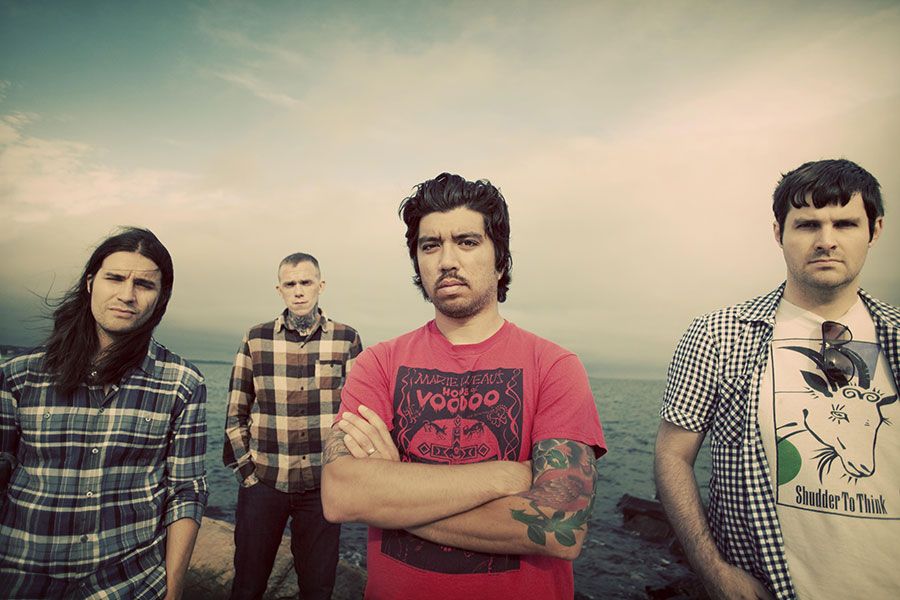
Converge (Kurt a la dcha)
Vemos también que desde finales de los 90 tampoco paras de colaborar con otras bandas (Cave In, Garrison, Old Man Gloom, Animosity, Torche, Trap Them… por mencionar solo unos pocos). Y que también tocas percusión, teclados, theremin, saxo… Como músico e ingeniero parece que ves ya el sonido y la música como Neo veía los números en Matrix. Aparte de que tendrás un truco para ampliar las 24 horas de un día, ¿cómo es ser un ser humano hecho casi al 100% de música?
Puede ser complicado para tener una vida personal. No tengo mucha flexibilidad de horarios, siempre estoy trabajando y la mayoría de las veces no veo a mis amigos salvo que los este grabando. Pero amo mi trabajo así que, al carajo.
En 2005 remezclaste y remasterizaste “Petitioning the Empty Sky” y “When Forever Comes Crashing”. Ahora estamos esperando el redux de “You Fail Me”. Y en el Blu-ray de “Thousands Of Miles Between Us” tenemos material de la gira “All We Love We Leave Behind” y material no visto de una década de Converge. ¿Cómo ha sido la experiencia de remezclar y de abrir viejos baúles?
Es interesante ver como hemos evolucionado como interpretes y como he evolucionado yo mismo como ingeniero. Las canciones realmente antiguas me resultan un poco difíciles de escuchar porque hay muchos fallos, tanto compositivos como de grabación, pero es lo que hay. Me impresiono mucho lo bien que tocabamos en “You Fail Me”. Comparandolo con las pistas básicas de “Jane Doe” puedo notar que hemos mejorado mucho como interpretes y como banda en los tres años de diferencia entre un disco y otro.

Godcity Studios
Habéis estado en el Roadburn 2016 tocando al completo el álbum “Jane Doe” por su 15 aniversario. Y luego para terminar de volarle la cabeza al personal, con “Converge: Blood Moon” habéis montado un grupo multi-instrumental con Chelsea Wolfe, Steve Von Till, Stephen Brodsky y Ben Chisholm. ¿Qué tal fue la “Roadburn Experience”? ¿Y qué nos puedes contar sobre los nuevos Blood Moon que habéis anunciado?
Roadburn fue genial. Los organizadores son gente realmente especial, el sitio es increible y la gente aun mas. Realmente se preocupan (los organizadores) de traer shows especiales todos los años, así que fue un gran honor que nos pidieran participar. También fue un gran honor tener a Ben, Chelsea, Steve y Steve, todos son músicos fantásticos y aun mejores personas, sin las cuales no podriamos haberlo hecho. Fue muy especial para nosotros en Converge escuchar nuestra música reimaginada junto a ellos. No tenemos planes inmediatos de hacer nada con ello por ahora, pero todos lo disfrutamos mucho y esperamos volver a hacerlo en el futuro.

Godcity Studios
“What One Become” de Sumac va rápidamente para convertirse en la obra maestra de 2016. La unión de artistas como Aaron Turner, Nick Yacyshyn y Brian Cook es un asunto muy serio, pero me atrevo a decir que el cuarto pilar ha sido tu participación como ingeniero y productor. Las asperezas y vibraciones del sonido son alucinantes. ¿Cómo ha sido este trabajo? ¿Y la vieja iglesia de Anacortes donde montasteis la grabación?
Estos tres tipos son verdaderas fuerzas creativas, grandes interpretes y tíos increíbles a los que tener alrededor. Creo que a Aaron le gusta que me halla divertido mas que frustrado con sus locas ideas y que haya sido complaciente en su búsqueda de lo extraño y, al mismo tiempo, haya sabido juntar todas las piezas. Se necesita un poco de creatividad en la ingeniería y un poco de visión para conseguir dar vida a esos sonidos, que muchas veces dependen del volumen y del tamaño de la sala, y trasladarlos a un ambiente mas controlado dentro del estudio. Grabar en la iglesia fue otra de las extrañezas con las que tuve que lidiar, ajustarme a ella y aprender a abrazarla. Teñia el sonido de todo lo que grabamos, asi que aprendi a amarlo.
¿Qué puedes contarnos sobre tus próximos trabajos?
Tengo muchos proyectos interesantes. Los primeros singles de los discos de Russian Circles y Nails en los que he estado trabajando acaban de salir. También he trabajado recientemente con Helms Alee, Dillinger Escape Plan, Trap Them, Pygmy Lush, Dylan Carlson y Emma Ruth Rundle. En la actualidad estoy trabajando con Code Orange y tengo pillado el resto del año, pero como no se si esos proyectos han sido anunciados mejor no digo nada.

Godcity Studios

Godcity Studios

Godcity Studios
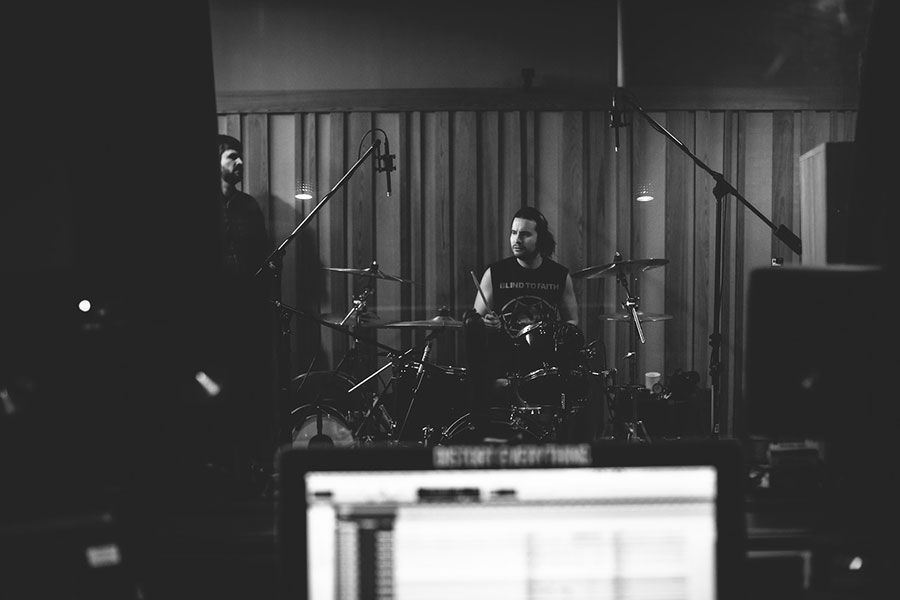
Godcity Studios, grabación último disco de Mutoid Man. Foto: Jason Zucco

Godcity Studios, grabación último disco de Mutoid Man. Foto: Jason Zucco

Godcity Studios, grabación último disco de Mutoid Man. Foto: Jason Zucco

Godcity Studios, grabación último disco de Mutoid Man. Foto: Jason Zucco
English:
HARDCORE & WITCHCRAFT IN SALEM WITH KURT BALLOU
The attentive ear listening, the brain processing, mapping mics and cables, fast hands over the console, same fast hands holding tigh to the guitar. This is a little glimpse, a simple summary on how Kurt Ballou handles more music than fits in 24 hours. To see the magic of the man sitting in the throne of GodCity Studio just listen to Converge or any of the music that he produced or edited. We´ve had the honor of distract him (momentarily) and made him this interview. Step on de distorsion and enjoy.
“Distort everything”. We can see it on your workscreen, like a philosophical motto on a temple’s door. How did you build up this idea?
My friend Scott made the stickers. He gave me one and I stuck it on my computer because that’s what you do with stickers.
Converge was born in the end of 1990, when you were about 16. It’s very usual that, in the origins of recent bands, some members just after taking their instruments for the very first time, start to deal with equipment, small mixers and playing around with edition. Having a look on your career, music is merged along with your skin and blood. When was Kurt Ballou infected by music and how did that contagion evolve?
I always loved music, but I didn’t grow up in a very musical house hold. My dad played a bit of guitar and, when I was little, even helped me build some “guitars” out of boards with nails and rubber bands on them. But there wasn’t a lot of music being played in my house. Consequently, I mostly found out about music from reading magazines and listening to college radio. I did the school band thing as a kid, but then got interested in punk and hardcore threw skateboarding. When I met Jake and the other original Converge people (then called Blind Sided) I was a bit older than them, and I had a car, gear, and already knew how to play a bit, so I just naturally filled a role for them. And then we just played and played and played and were too stubborn to quit. Fast forward 25 years and we’re still here.
We’ve tracked your production and recording work up to about 1996 with Jesuit, or in 1998, when you release “When Forever Comes Crashing” with Converge. What did all that previous stage as a producer-musician mean to you until GodCity Studio was born?
Godcity was founded in 1995 in my parent’s garage. I had 3 other small studios before moving to the present location in Salem. I’ve always looked at recording bands, playing in bands, touring, building guitars, building pedals, etc as different sides of the same coin. They’re all part of a creative, DIY ecosystem. What I love doing is being a part of a community, being useful to my friends, and being creative.
After having a look on GodCity Studio’s website, we can see that it’s a kind of centre of musical pilgrimage. Apart from provoking the wickedest stare to Nick Yacyshyn in the web’s video-intro, we feel really amazed when watching the equipment (and reading your descriptions). As a musician and producer, it’s obvious you’ve got the equivalent of a gourmet’s taste. Can you speak us about your favourite toys?
All pieces of gear are just tools. You just try to find the best tool you have for the job, and if you don’t have a good tool for the job, you try to get a better one. Certain pieces will see more action than others for a while, but then I’ll get into something new. The important thing is to always be exploring. I try my best to give each band I work with a personalized recording experience, and part of that means spending time with them, learning what they like, and finding tools to compliment their aesthetic. Having a lot of gear on-hand is a great way to do that.
Converge is part of the centre of the American underground music in the second half of the 90s. In Massachussetts, you worked with bands like Cave In, Orchid or Garrison. Aaron Turner moved Hydra Head to Boston in 1995… Satan had to be very busy and happy with you all at that moment. Can you tell us something about how the scene in Massachussetts was being created and growing?
Boston, being such a big college town, has always been a place full of young, intelligent transients. Because of that, there’s always an influx of new ideas and new talent. It can also make it a hard place to age. But for different scenes, and different time periods, it can often be a hot bed of activity. Late 90’s through early 2000’s a lot of people from our world started to really come into their own. I think it had a lot to do with the fact that nobody from outside our little scene noticed or cared what we were doing. We simply had to do it for ourselves or it wouldn’t get done. Those formative years were the foundation of our creative language, but also the foundation of how we would conduct our business.
We can also see that, since the end of the 1990s you don’t stop working together with other bands (Cave In, Garrison, Old Man Gloom, Animosity, Torche, Trap Them… just to mention some of them). You also play percussion, keyboards, theremin, saxo… As a musician and engineer it seems that you see sound and music as Neo saw numbers in The Matrix. Apart from surely having a spell to stretch the 24 hours in a day, what is being a human 100%-made of music like?
It can be a challenge to have a personal life. I don’t have much flexibility in my schedule. I’m always working, so I don’t always get to see my friends unless I’m recording them. But I love what I do, so fuck it.
In 2005 you remixed and remastered “Petitioning the Empty Sky” and “When Forever Comes Crashing”. Now we are waiting for “You Fail Me” redux. And, in “Thousands of Miles Between Us” Blu-Ray we’ve got content from the “All We Love We Leave Behind” tour, plus more unseen content from a whole decade of Converge. How was the experience of remixing and recovering old memories?
It’s interesting seeing how we’ve evolved as players and how I’ve evolved as an engineer. The really old stuff is a bit hard for me to listen to, because there’s so many creative and engineer missteps, but it is what it is. I was pretty impressed with how good we played on You Fail Me, though. Comparing it against the raw tracks of Jane Doe, I can hear that we improved as players and as a band a lot in the three years between Jane Doe and You Fail Me.
You’ve been in Roadburn 2016 playing the whole Jane Doe album for its 15th anniversary. Then, in order to blow up the audience’s brain, with “Converge: Blood Moon” you’ve set up a multi-instrumental band with Chelsea Wolfe, Steve Von Till, Stephen Brodsky and Ben Chisholm. How did the Roadburn Experience go? What can you tell us about that the new Blood Moon you’ve announced?
Roadburn was great. The organizers are really special people, the venue is great, and the crowd rules. They really care about putting together special shows every year so it was a great honor to be asked to participate. It was also an honor to have Ben, Chelsea, Steve, and Steve grace us with their presence. They’re all fantastic musicians, equally great human beings, and we couldn’t have done that without them. It was really special for all of us in Converge to hear our music reimagined with all of their help. We have no immediate plans to do anything else with it, but we all enjoyed it and hope to do more in the future.
Sumac’s “What One Become” is on a fast way to become 2016’s masterpiece. That union of artists like Aaron Turner, Nick Yacyshyn and Brian Cook is a very delicate issue, but I dare to say that the fourth main element has been your involvement as an engineer and producer. The roughness and vibration of the sound are really amazing. How was this work? And what about that Anacortes old church were you arranged the recording?
All three of those people are amazing creative forces, great players, and awesome dudes to be around. I think Aaron likes that I’m more amused than frustrated by his nutty ideas and am happy to indulge him on his quest for weirdness, but at the same time, know how to fit all the pieces together. It takes a bit of engineering creativity and vision to figure out how to get those live sounds, which are often very dependent on volume and headroom to translate to a recorded, minimal headroom environment. Recording in the church was just another weird thing for me to deal with, adjust do, and learn to embrace. It imparted a sound on everything that I couldn’t escape from, so I learned to love it.
What can you tell us about your upcoming projects?
I have a lot of cool stuff in the works. The first singles from the Russian Circles, and Nails albums I worked on were just released. I’ve also recently worked with Helms Alee, Dillinger Escape Plan, Trap Them, Pygmy Lush, Dylan Carlson and Emma Ruth Rundle. I’m currently working with Code Orange. I’m booked for the rest of the year as well, but I’m not sure which of those projects are announced yet, so I’d better not share.
www.godcitystudio.com
DISCOS PRODUCIDOS POR KURT:

American Nightmare

Torche

Russian Circles

PygmyLush

Old Man Gloom

Nails
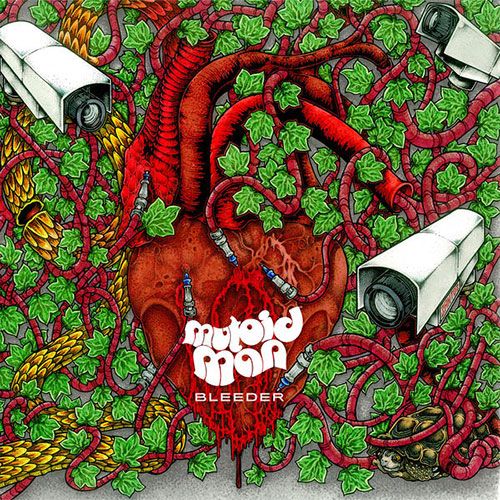
Mutoid Man

Modern Life is War

Kvelertak

High On Fire

Converge

Converge
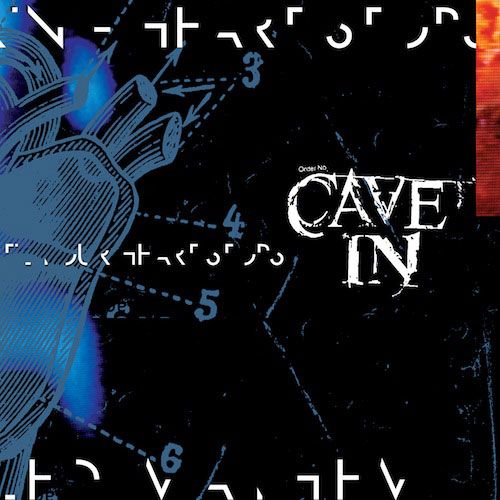
Cave In
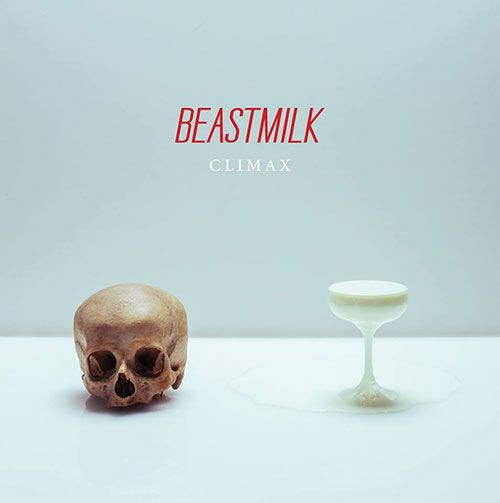
BeastMilk